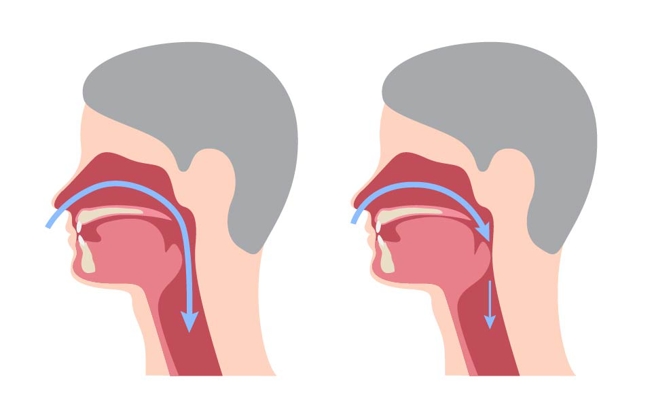Showing Your Heart Some Love This Holiday Season
- Category: Education, Exercise, Family Health, Healthy Diet, Healthy Eating, Heart Disease Education, Heart Health, Lung Cancer, Senior Health, family care
- Posted On:

Being Thankful for Your Cardiovascular Health
With love and gratitude in the air, what better time than now to show your heart a little extra tender, love and care? Here are some tips to help you and your loved ones have a heart-healthy holiday!
Try to Keep Your Stress Levels Under Control
Whether you’re traveling for the holidays or hosting your loved ones at home, the holiday seasons can bring on elevated levels of stress. While it’s okay to experience heightened levels of stress once in a while, having heightened levels of stress for long periods can be detrimental to your cardiovascular health.
How Chronic Stress Affects your Heart
When you’re in a stressful situation, your body undergoes a chemical response, triggering the release of hormones like cortisol and adrenaline. This can be relatively harmless and can even help to save your life in life-threatening situations.
However, chronic stress happens when you are exposed to these hormones and your brain’s stress response for a prolonged period of time. This can lead to:
- High blood pressure
- Faster heart rate
- Increased risk for heart disease
- Heightened risk for cardiac events
Can Lead to Harmful Coping Mechanisms
When people are stressed out, they tend to turn to familiar and unhealthy coping mechanisms that can be harmful to their cardiovascular system. Some examples include:
- Smoking cigarettes.
- Sedentary behaviors.
- Binge eating.
- Eating processed foods.
- Abusing medications.
- Binge drinking.
Healthy Ways to Cope With Stress
Thankfully, there are plenty of healthy ways to manage your stress levels during the fall season. Here are some ways that you keep your stress levels under control during the holidays:
- Take nature walks and hikes.
- Spend time with loved ones.
- Try mindfulness meditation.
- Try journaling.
- Be mindful of your stress triggers.
- Listen to music you enjoy.
Catch Up on Your Rest
When preparing for holiday festivities, many people find themselves sacrificing their sleep to make everything just right. However, adults need to get 7-8 hours of good quality rest each night. Not only does this help you to feel refreshed and focused the next day, but it also helps to effectively reduce your risk of developing heart disease and type 2 diabetes.
Some tips that can help you get a better night’s rest include:
- Avoid taking naps during the daytime.
- Try to go to sleep and wake up at consistent times each day.
- Avoid artificial blue light 30 minutes before bed.
- Keep your bedroom an electronic-free zone.
- Keep your bedroom dark and cool in temperature.
Pay Attention to Your Cholesterol Levels
When you have high cholesterol, it can leave you at a higher risk for developing heart disease and for experiencing a cardiac event. When your cholesterol levels get too high in your blood, it can block off blood flow through your arteries, subsequently impacting the blood that flows back to the heart,
Your cholesterol should fall into these ranges to be considered healthy:
- Total cholesterol: Less than 200 mg/dL
- Low-density lipoprotein (LDL): Lower than 130 mg/dL.
- High-density lipoprotein (HDL): 60 mg/dL or higher.
Make Healthy Holiday Food Choices
Like most areas of your health, your diet significantly impacts your cardiovascular health—even during the holidays. When planning your Thanksgiving dinner, try to keep these healthful tips in mind:
- Opt for butter alternatives like olive oil or avocado oil.
- Rather than using cream, use applesauce.
- Use fresh herbs and spices, cutting back on added salt.
- Add colorful vegetables to the menu.
- Cut back on your sugar consumption.
Get Your Heart Pumping
When you think of the holidays, you think of catching up on your rest and relaxation with the people you love. While it’s beneficial for your mental health to refresh and reset, too much sedentary behavior can be harmful to your heart health.
It’s recommended to get at least 150 minutes of moderate-intensity aerobic exercise each week, especially during the holidays. Not only does exercising help to strengthen your heart and make your lungs more effective, but it also helps your body to manage your blood sugar levels better.
Regular exercise helps you to reduce your risk for the following cardiovascular health issues:
- Heart attack
- Stroke
- Heart failure
- Arrhythmia
Some aerobic activities you can add to your routine to get your heart pumping this fall include:
- Hiking
- Nature walks
- Bike riding
- Roller skating and rollerblading
- Camping
- Picking apples
- Going to a pumpkin patch
- Heading to a farmer’s market
- Flying kites
- Visit a petting zoo
- Go on a fall scavenger hunt
Quit or Never Start Smoking
Although most people associate smoking with lung disease, it can also affect your heart health. Smoking and using tobacco products affect your cardiovascular health in the following ways:
- Limits the oxygen flow to your heart.
- Raises your blood pressure.
- Increased risk of developing blood clots.
- Raises your heart rate.
- Damages your blood vessels.
Some of the benefits of quitting smoking and using tobacco products include:
- Lower risk of heart disease 2 years after quitting.
- Reduces your risk of dying from heart disease.
- Lowers risk of a first or recurring heart attack.
- Lowers heart rate.
If you have any additional questions about how you can support your heart health, be sure to speak with your cardiovascular health care team.
Cardiovascular Care in Titusville
When it comes to supporting your cardiovascular health, your Parrish Healthcare Cardiovascular team are experts in the art of healing your heart, lungs, and veins.
If you have heart-related health concerns, take our HeartAware Health Risk Assessment. It takes just a few minutes to receive your personalized and confidential information.



